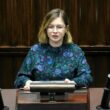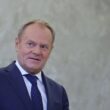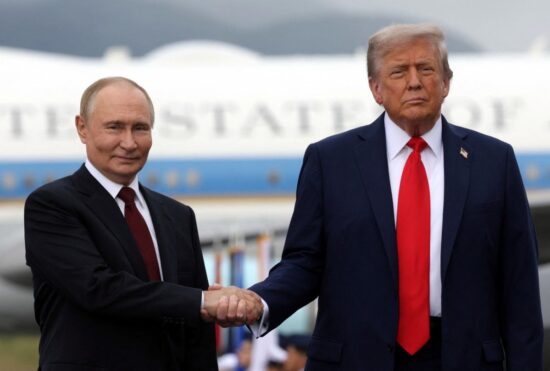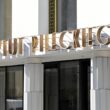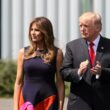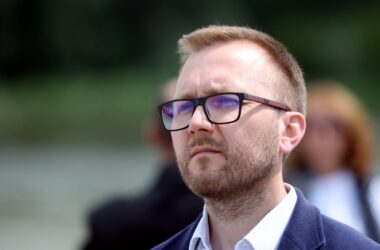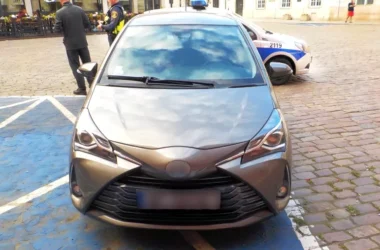Experts say the Trump‑Putin meeting yielded no breakthrough in the Ukraine war; while Moscow gained PR advantage, the summit appears only a prelude to future talks.
Meeting between Donald Trump and Vladimir Putin in Alaska
On the night from Friday to Saturday, in Anchorage, Alaska, the two leaders met. The summit began with a warm welcome at the airport. American media noted that the Russian dictator was received with honors befitting a leader of an allied country, not one that has for many years maintained very cold relations with Washington. After about three hours of discussion, the session ended. At the press conference, the leaders delivered their own statements. Vladimir Putin spoke for more than eight minutes, Donald Trump for just over three minutes. The joint lunch was cancelled.
Conclusions from the Talk
Donald Trump claimed that they had managed to agree on at least a few issues. “We had an extremely productive meeting. We met on many points. There are still a few points that are less important, except for one that has the greatest significance. We did not reach an agreement, but there is a great chance that it will happen,” the U.S. president said. “Our talks took place in a constructive atmosphere and were very beneficial,” Vladimir Putin continued. He noted that the conversation could be a starting point to resolve the Ukraine war and restore Russian‑American relations.
Comments on the Trump‑Putin Summit
“The summit between the U.S. and Russian presidents lasted just under three hours and brought no significant results, except for Trump’s words that there is progress in talks about a ceasefire. In the post‑meeting speech, Putin spoke a lot about how the United States is a neighbor with whom Russia has jointly fought against common enemies. And traditionally, he returned to his old slogans about Ukraine being a brotherly nation, but the underlying causes of this conflict must be removed,” summed up Anna Maria Dyner, analyst of the Polish Institute of International Affairs on Belarus and Russian Federation security policy.
According to her, “but one cannot say that the summit in Alaska ended in a failure.” “According to expectations, it is just the beginning of tedious talks. The Russians will still use it for propaganda. After all, it was Putin’s first visit to the U.S. in ten years, and the first talks between the U.S. and Russian presidents in four years. Ahead of us is an intensive time in international politics. First, the talks between Trump and Zelensky. Then a series of talks that will also concern European security,” she added.
“We know that… we don’t know a lot. We did not learn any specific details that are crucial for assessing whether the meeting had a breakthrough character. PR‑wise, Putin and Russia achieve a big success. It is also not expected that the USA will take a harsher course against Russia today. We don’t know what the ‘disputed issue’ that Trump hinted at means: whether it is territory (more likely) or guarantees (less likely). What is mildly worrying is the fact that Putin did not really come across as giving up any war objectives, even though he changed the rhetoric towards Ukraine,” assessed Dr. Mateusz Piątkowski, lawyer, expert in international humanitarian law of armed conflicts.
“Putin kept all his main postulates regarding Ukraine.” Mr. Sadłowski noted that from the point of view of his position in Russia, Vladimir Putin currently looks victorious. He obtained propaganda‑good footage, generated considerable unease in the EU and NATO, and during the closing speech retained all key postulates regarding Ukraine. Thanks to this, he can consolidate his internal political position and his elites; he manifested that after the great crisis in relations with the U.S., they were now properly received, new sanctions have not yet been imposed (they avoided them), and with Donald Trump there will likely still be dialogue.
“In Alaska without a breakthrough. There is no peace agreement or ceasefire. There were only declarations and courteous statements. Donald Trump said it was a very good meeting. Vladimir Putin highlighted that he hopes the agreements will pave the way to peace in Ukraine,” commented US correspondent Paweł Żuchowski of RMF FM in the USA.
“If Putin says the war will end, but fundamental Russian concerns behind it must be resolved, it means nothing was achieved, and Russia will continue to wage the war,” summed up Marcin Łuniewski, journalist of “Rzeczpospolita” and Academic Radio Campus.
“In short, no decisions were made. The war continues. No sanctions. The agreements the leaders mentioned are unknown. The near days and reactions of the European capitals may somewhat clarify the diplomatic fog,” wrote Bartłomiej Wypartowicz from Defence24.pl.
“3.5 hours of talks and a joint press conference so the world can learn about the history of Alaska and that the ‘deal is not settled until it is signed’? Putin – playing a satisfied victor, Trump – a sour and dissatisfied face. We know we don’t know. We don’t even know what they talked about. But we know there will be further talks. No breakthrough. No success. No loss.” Joanna Pinkwart, former TVP Washington correspondent currently at Zero Channel, commented on X.
**Kaynaklar:** IAR, portal X



